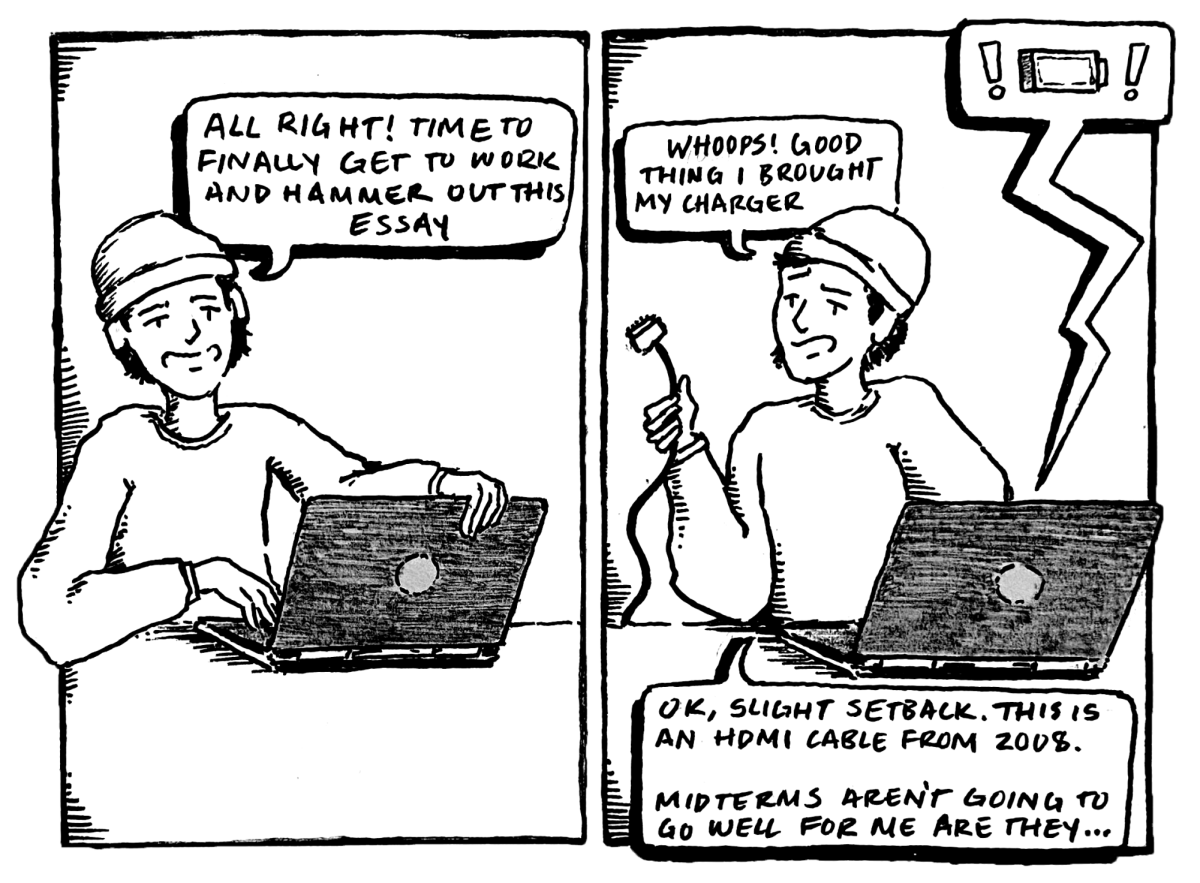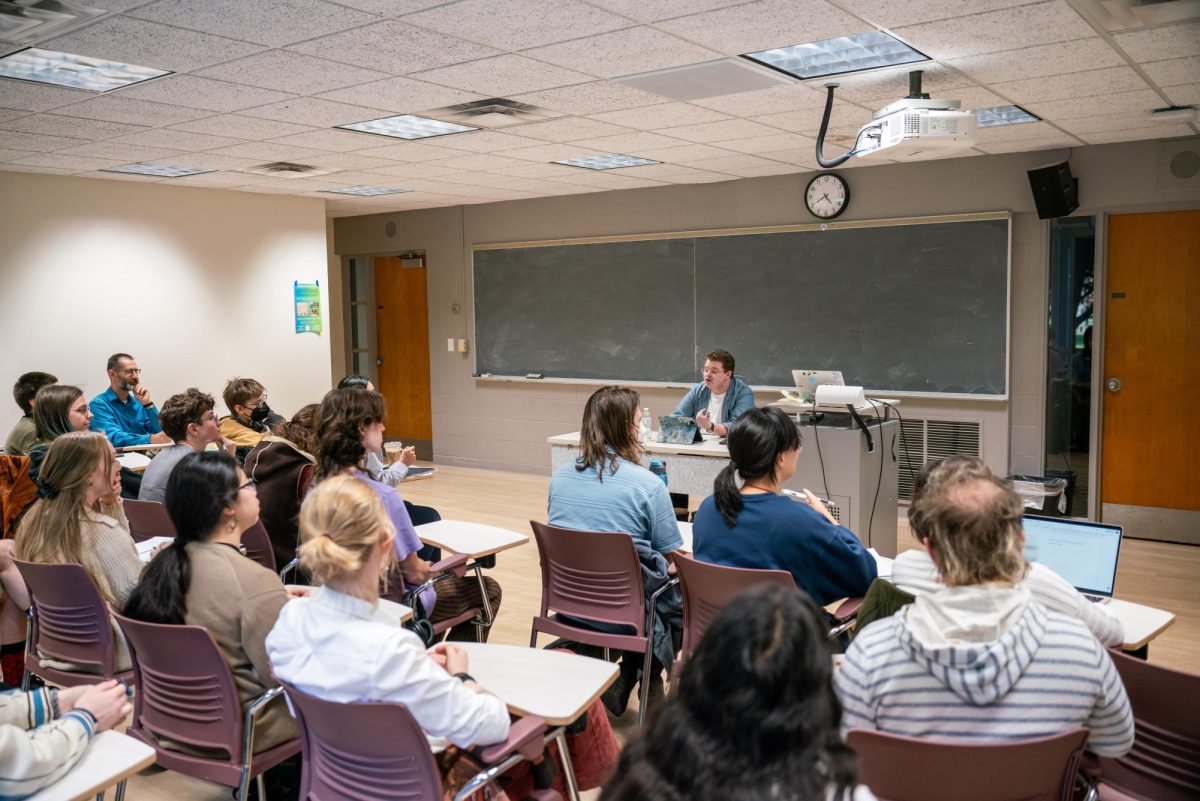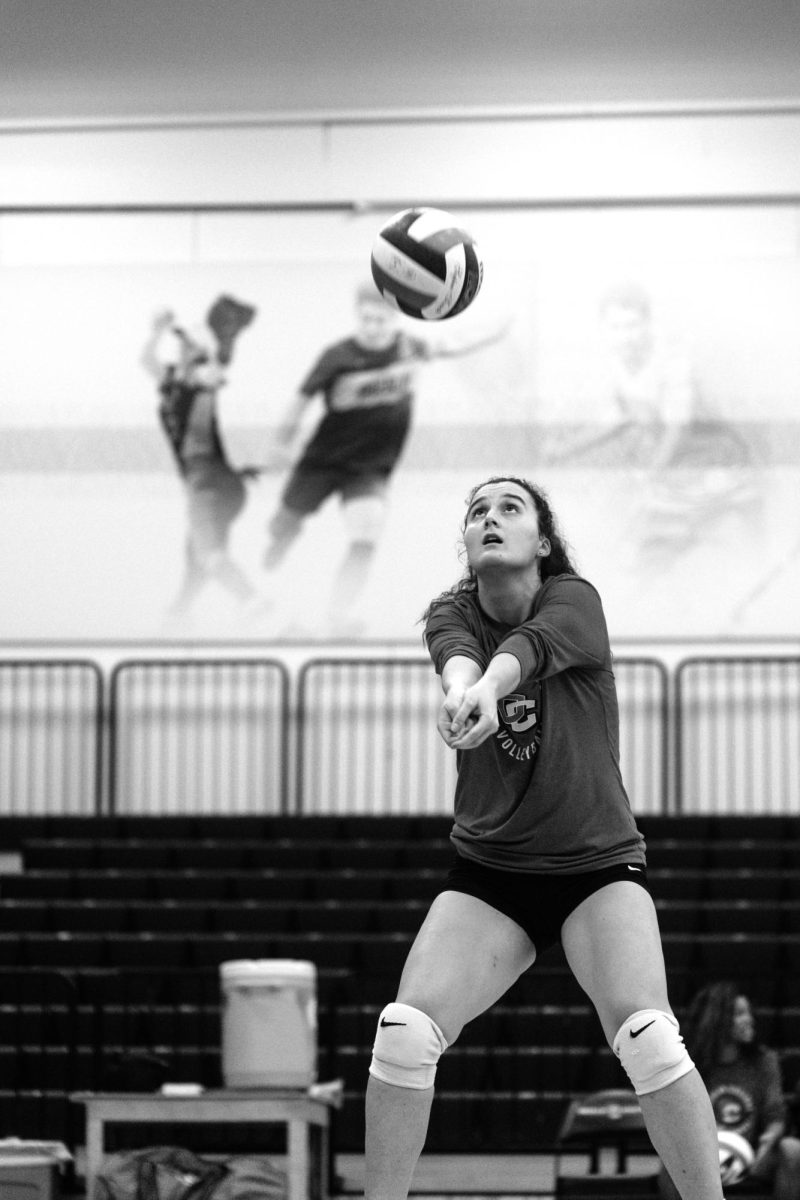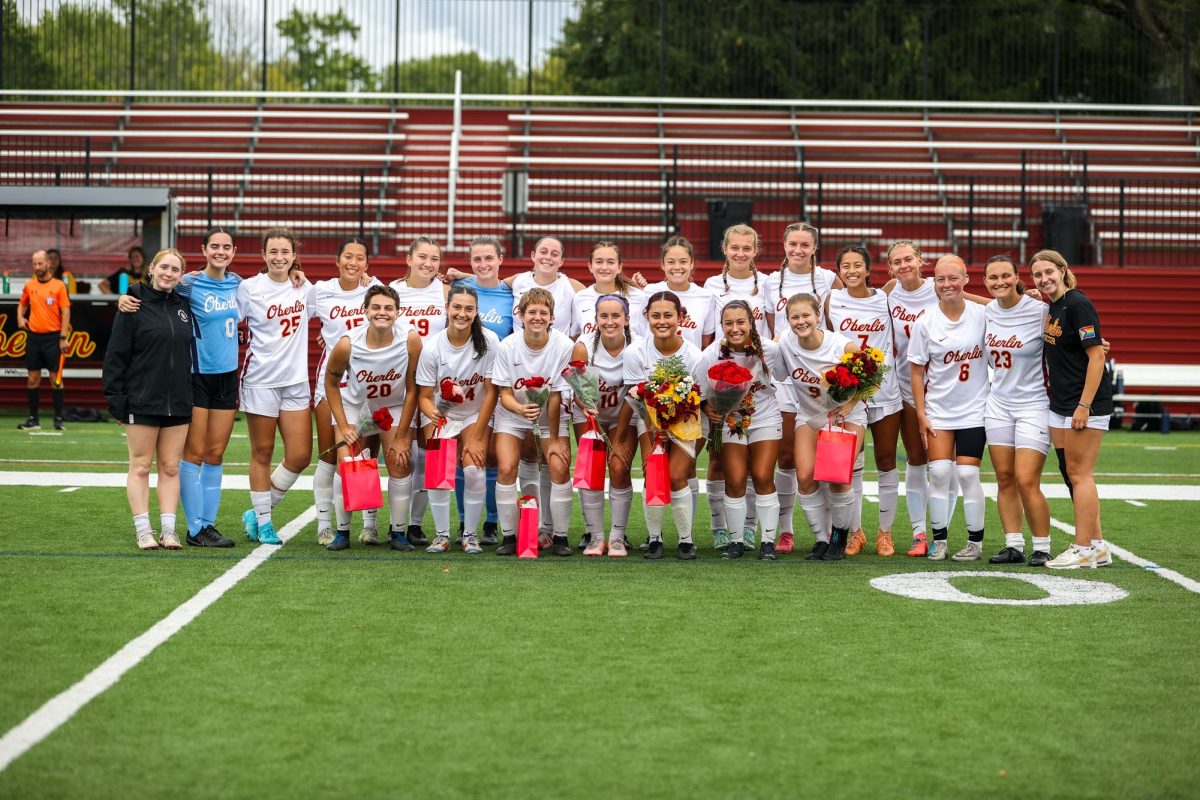County Investigation Delays Gibson’s Trials
Photo by Bryan Rubin, Photo editor
Customers check out at Gibson’s Bakery. The trials of College sophomores Cecelia Whettstone and Endia Lawrence — who were charged with assault after November’s shoplifting incident at the bakery — have been pushed back to May 15, with the possible addition of new charges.
April 28, 2017
The trials for two students charged with assault in the aftermath of last November’s incident at Gibson’s Bakery have been pushed back to May 15 and could lead to additional charges following Wednesday’s grand jury hearing.
College sophomores Cecelia Whettstone and Endia Lawrence were originally given an April 17 pretrial date for misdemeanor assault charges after allegedly attacking store employee Allyn Gibson as he and College sophomore Elijah Aladin engaged in a physical altercation across the street from the store.
However, defense attorney Jack Bradley requested that Oberlin Judge Thomas Januzzi push the trial back after learning that Whettstone and Lawrence both received subpoenas to testify at Wednesday’s hearing, which re-examined evidence in regards to the Gibson’s incident and could add, change or remove charges against the three students involved. According to Bradley, between 12–15 people have been subpoenaed, which he said is a large amount of testimonies for a grand jury and likely would take all day to complete. In an email to the Review, Aladin said he did not attend the hearing. Aladin had his case sent to Lorain County Prosecutor Dennis Will for review after Januzzi rejected a plea deal that would have dropped the felony charge in February and since then has not received any charges.
The fear for Bradley and his two clients is that new evidence and testimonies could suggest that Whettstone and Lawrence will be charged with a more serious felony charge.
“There’s always that possibility that they could hear evidence from other witnesses that might cause them to say they are going to charge more than one person,” Bradley said. “It could even be people other than my clients because there were certainly other people there.”
Whereas actual trials involve back and forth presentations of the defense and prosecution, grand juries are an opportunity for a group of jury members to hear all the evidence presented by the prosecutor, in this case, Will, who did not respond to the Review’s request for comment. The judge and defense attorney are not brought into the meeting. After reviewing all evidence and hearing testimonies from the prosecution’s witnesses, the jury members vote to decide if different charges should be given and against whom.
Because any additional testimonies carry the possibility of evidence to increase charges past assault, Bradley instructed both Whettstone and Lawrence to invoke their Fifth Amendment rights and decline to speak when called upon during the hearing.
“Normally, if I’m representing someone and don’t know what they’re going to be asked, I won’t have them testify, as they do have that right,” Bradley said.
It’s unclear who the prosecution summoned other than Whettstone and Lawrence, but Bradley said that the College’s outgoing attorney Sandhya Subramanian informed him that “numerous subpoenas were served to the College, given to students and staff.”
Subramanian, Vice President and Dean of Students Meredith Raimondo and Tita Reed, Special Assistant to the President for Community and Government Relations, declined to comment on their roles in the recent investigation or confirm who appeared at the grand jury hearing.
Although the large number of subpoenas could add charges, Creative Writing Professor Lynn Powell believes it could be a sign that the prosecutor instead wants to avoid going through with the trial for Aladin.
“The conclusion I would draw from the number of subpoenas the prosecutor has issued in this case is that he wants the grand jury to hear a wider range of evidence than just the police report,” Powell said in an email to the Review. “That suggests to me that he’s not convinced this is a good case to take to trial.”
Powell served on a Lorain County grand jury as a foreperson for three months and wrote a book titled Framing Innocence, which follows a case of how city politics in Oberlin influenced the local judicial system. In addition, Powell found it unsurprising that Aladin was not summoned to testify and said that in her experience, it was very rare for defendants to be brought to testify.
“In the nearly 200 cases my grand jury heard over a three-month period, I can remember the prosecutor allowing a defendant to testify only twice,” Powell said. “In both cases, it was to the defendant’s advantage to be able to tell their story directly to the grand jury. In most other cases, the only testimony came from law enforcement, detectives and, occasionally, victims.”
A representative from the Lorain County Court of Common Pleas said the results of the hearing would be released sometime today, but Januzzi said the process varies in how long it takes.
“Sometimes they make a decision the same day, and other times it can take a while longer,” Januzzi said. “The reason it was continued was to see what would happen at the grand jury. Grand jury proceedings aren’t open to the public, so I’m not any more privy to it than the public. I guess I would say I’m anxious. I’ve been waiting to find out, too.”
Another difference between prior set criminal charges and grand jury charges is that there does not need to be definitive proof that the crime was committed. According to Bradley, this means a lower bar must be met for jury members to indict defendants if it seems more probable than not that they are guilty.
“It’s a very low standard to get someone charged, just probable cause, which is less than proof beyond a reasonable doubt,” Bradley said. “This standard is just good reason to believe [they should be charged].”
According to Januzzi, any new felony charges would move Whettstone and Lawrence’s trials to the county court, but Januzzi added that they may just keep the misdemeanor charge or not indict at all.
“You wouldn’t want to have the same facts pending in two different courts because then you would have issues of double jeopardy and just fundamental fairness issues,” Januzzi said. “You can’t be defending yourself in two different courts.”
Oberlin Prosecutor Frank Carlson did not respond to the Review’s request for comment. The trial for Whettstone and Lawrence is currently scheduled in Oberlin Municipal Court at 8:30 a.m. May 15, presuming no new charges are added.



















